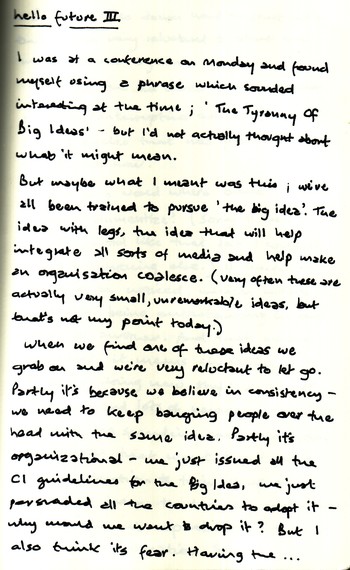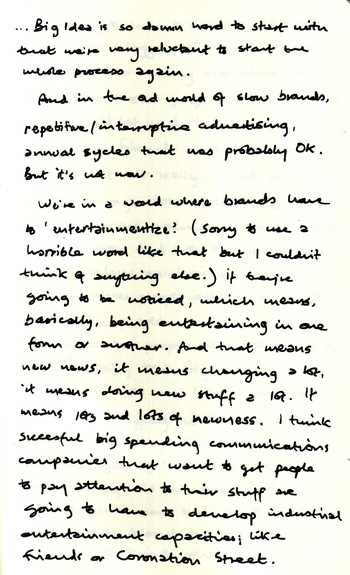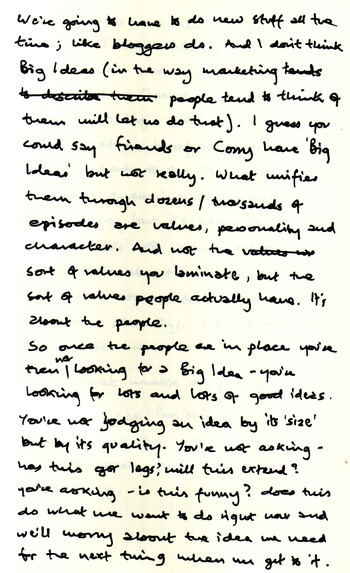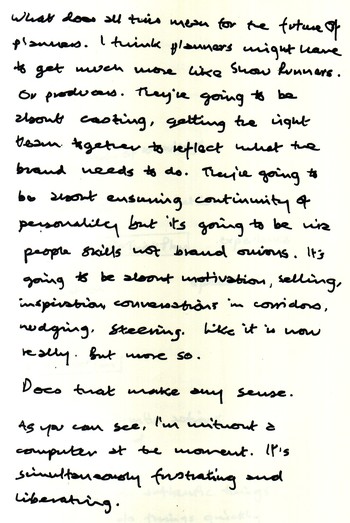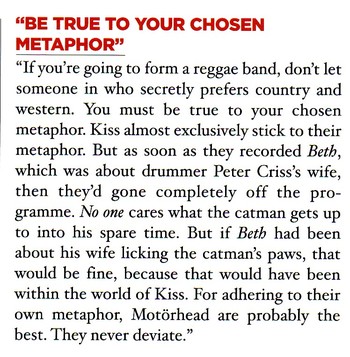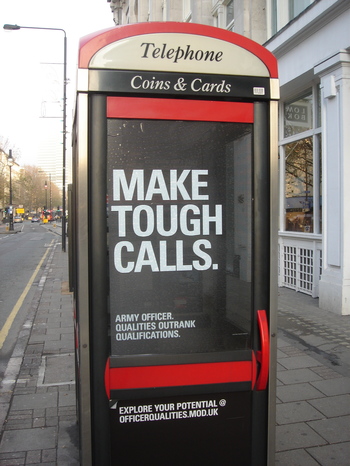You've probably seen the edge.org question project and been daunted by the sheer amount of stuff, as I was, in answer to the question:
'WHAT IS YOUR DANGEROUS IDEA? - The history of science is replete with discoveries that were considered socially, morally, or emotionally dangerous in their time; the Copernican and Darwinian revolutions are the most obvious. What is your dangerous idea? An idea you think about (not necessarily one you originated) that is dangerous not because it is assumed to be false, but because it might be true?'
But last night I took the plunge, printed out all 140 or so pages and ploughed through it. Most of it is way too clever for me and many of the answers are deeply, abstractly, philosophical or mathematical. Stuff I'd like to think I understand, but actually, don't.
But in my normal bid to make something trivial out of something profound I've plucked out the pieces that might help us all think differently about brands, communications, people and all that.
1. Leo Chalupa - a 24-hour period of absolute solitude.
Actually, I'm not sure this tells us anything about brands and stuff, but it definitely sounds like a good idea. And maybe it should make us think about the dangers of over-communicating and being too oppresive with the amount of stuff we throw at people.
2. Marco Iacoboni - Media Violence Induces Imitative Violence: The Problem With Super Mirrors
If true this is obviously troubling for those of us selling video-games or movies. And you could also see implications in here for understanding how advertising/marketing communications might work. (Since no-one really knows.) And it also raises ethical issues about that. People who defend advertising (like me) often do so on the basis that it's actually a very weak force and people are free to make up their own minds about what they do. But maybe this suggests they're less free than we think.
I'm not sure I buy this one, but then it's in my interest not to, and I have absolutely no professional expertise on the subject.
3. Juan Enriquez - Technology can untie the US
This is definitely an interesting idea, and contains a killer fact - 'There has yet to be a single US president buried under the same flag he was born under'. But the larger point I think we should all remember is that a lot of the continuity we take for granted is probably illusiory.
4. Andy Clark - The quick thinking zombies inside us
This is something we're all starting to realise, if we've been reading any neuroscience or Malcolm Gladwell (and I don't know what else you might be doing all weekend). It would seem that many of the decisions we make are made by 'quick thinking zombies' - our evolutionarily sound instincts - and then post-rationalised by some other bit of the brain, and presented to 'us' as a rational decision. Which would suggest - again - that the rational content in ads is perhaps the least important stuff.
5. Sherry Turkle - After several generations of living in the computer culture, simulation will become fully naturalized. Authenticity in the the traditional sense loses its value, a vestige of another time
If you only read one of these, just read this one, it's really interesting. She tells a great story about chiidren and robot turtles which makes you examine all your assumptions about 'authenticity' and makes me think about whether our striving for brand authenticity is really that important. And wouldn't narrative coherence and utility be more useful ideas.
Then she talks about some experimental robots designed to provide company to people in nursing homes - they simulate some of the comforts provided by a friend or a pet, with touch or with eye contact, and she wonders about the validity of these relationships. She calls these things 'relational artifacts' - and isn't that a perfect way to think about brands? We try and build relationships between brands and people, but we don't think enough about the ultimate impossibility of these being 'real' relationships. Maybe this isn't a problem, but it's definitely something we should remember to think about.
6. Steven Strogatz - The End Of Insight
Strogatz is talking about higher mathmatics and worries that insight is becoming impossible - that all the problems that are comprehenable by the mind have already been comprehended. There are things we can prove - like the four-colour map theorem - but we can't understand why they're true.
I can't pretend to know what he's talking about, but I think we've reached the end of insight in our little planning world. I suspect that in many markets, with many consumers, in many countries, we've finally scraped the bottom of the insight barrel. And though we desperately reach for new tools like ethnography or hypnotism it's clear that there's nothing new consumers can tell us.
I love this. Because it means we have to fall back on our own resources and actually have some ideas - which is a good thing.
7. Stewart Brand - What if public policy makers have an obligation to engage historians, and historians have an obligation to help?
A lot of planners were once historians. I've got a history degree (though not a great one) and I've always thought it was largely irrelevant, and it probably is. But Brand raises the interesting idea of 'Applied History' - using history to illuminate future decisions - in reality that's what a lot of us do, a lot of the time (that's what competive reviews are all about, and every pitch process probably has a bit of applied history in it) - maybe if we called it Applied History our inner academics would find it a little more nourishing.
8. Daniel Goleman - Cyber-disinhibition
This is warning for us all - both personally and professionally. Goleman reminds us that electronic communications tools don't provide for nautral, human, feedback - we're 'talking to' people but we don't see, feel, touch, sense them, and this reduces the human inhibitions which make for reasonable relationships. Put simply, we're much less likely to 'flame' people if we see them in person.
We've all realised this in our personal interactions - we learn to moderate our online/email communications. But it's something that brands should think about too - as our relationship tools become increasingly virtual. If our relationships with our customers are entirely electronic are we getting all kinds of nuances seriously wrong, and are we missing all sorts of cues?
9. Richard E Nisbett - Telling More Than We Can Know
Similar stuff here to Andy Clark's ideas about quick-thinking zombies but no less powerful for that. Again we are reminded of Blink - we simply do not know and cannot explain why we've made many of the decisions we make. And if we do have an explanation, it's probably wrong. Which means that most market research is useless (haven't you always suspected that?) - at least it's useless in doing what it normally says it does, it's incredibly useful for all sorts of other reasons.
(And if you've got all kinds of clever ways of subverting this problem please don't write and tell me about them.)
Anyway, that's it for me. This is why I love the internet - all that fascinating stimulation, just sitting there to be lapped up. I'd heartily encourage you to go and have a read.


